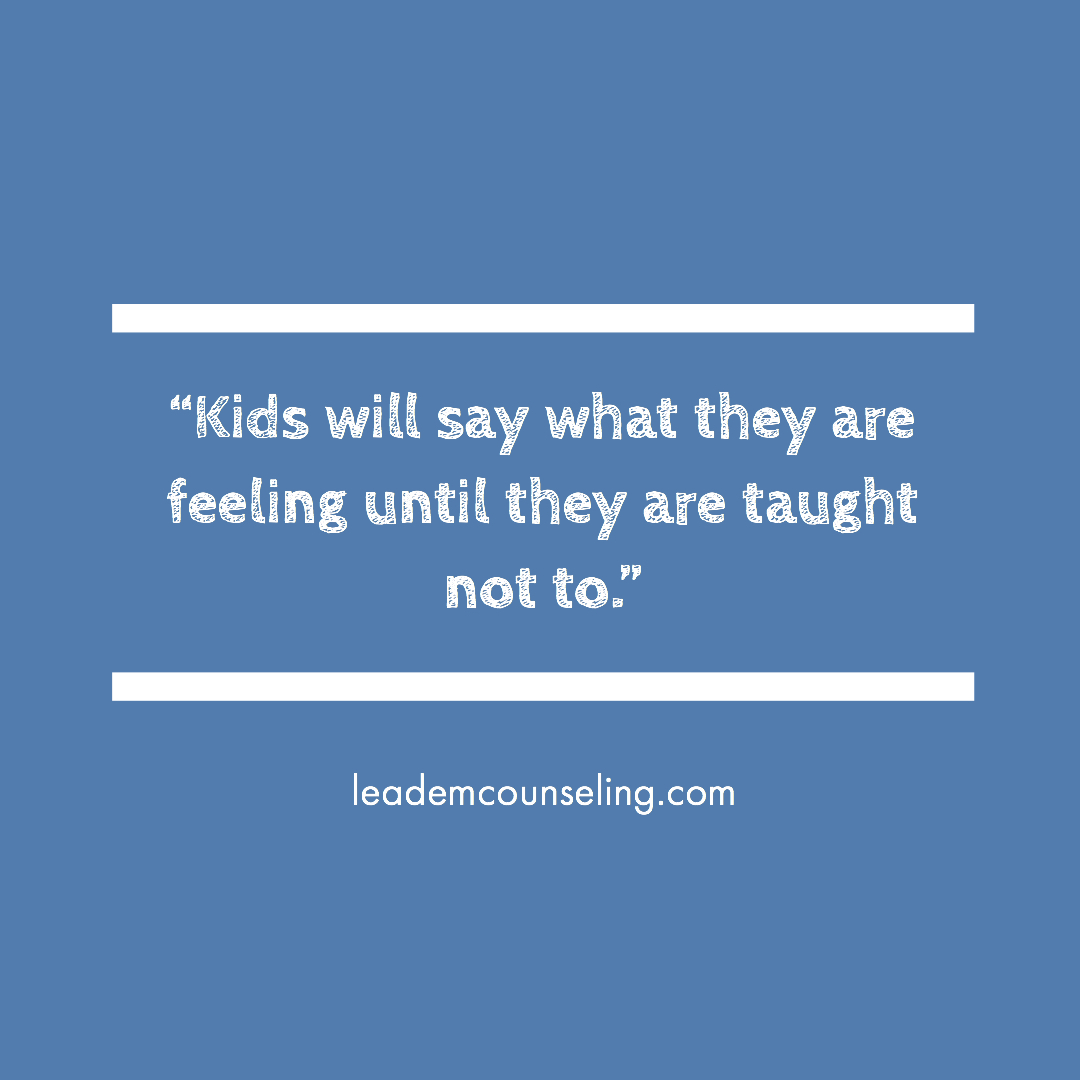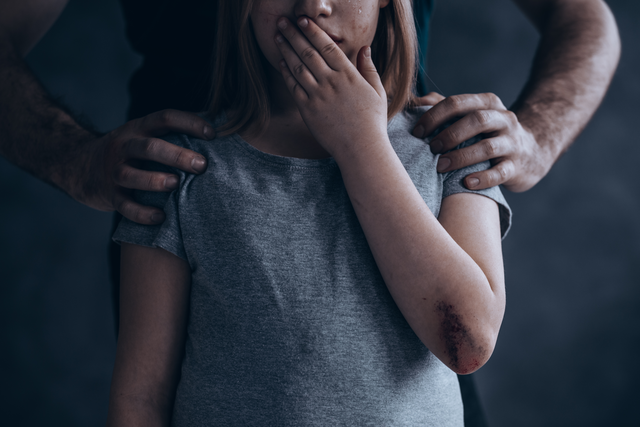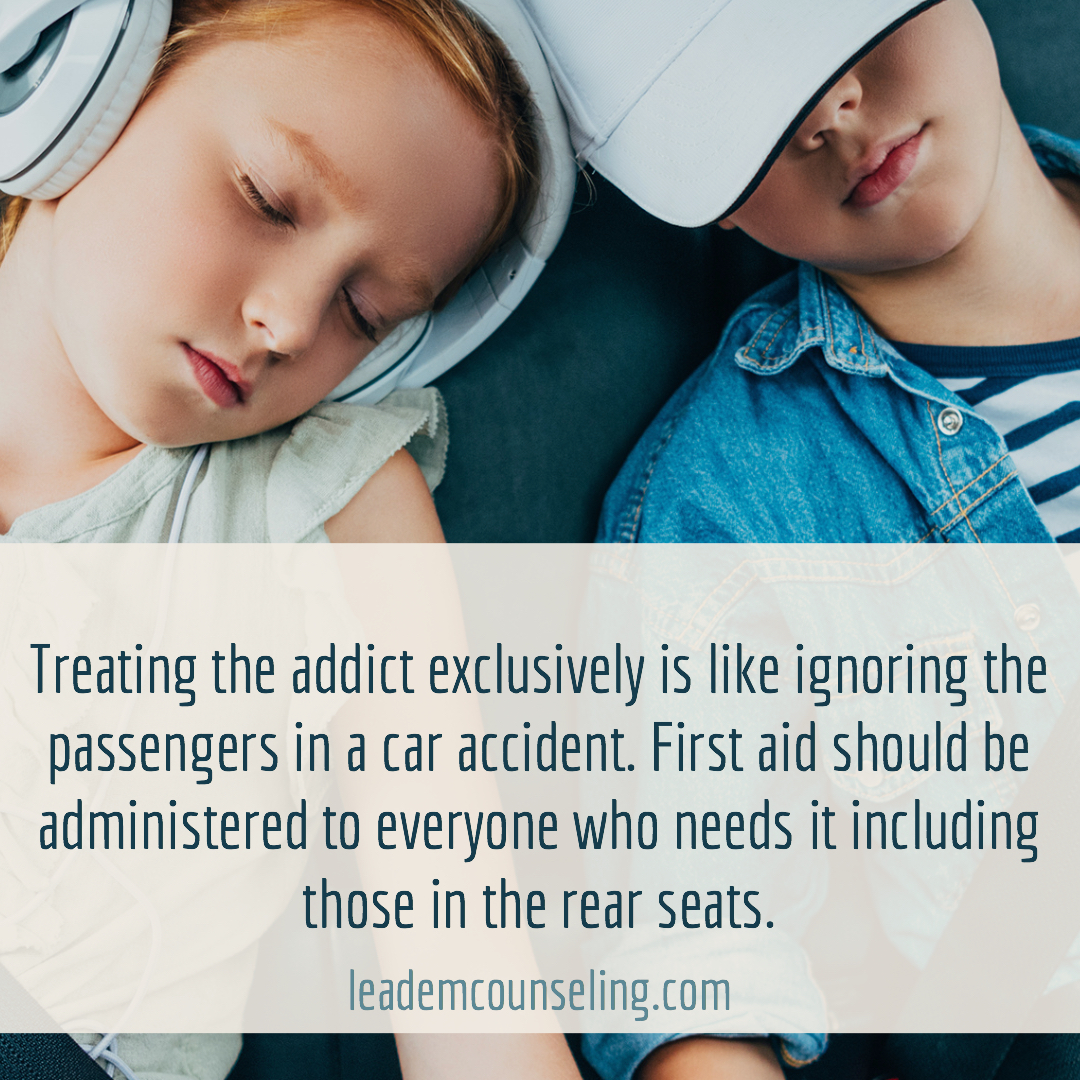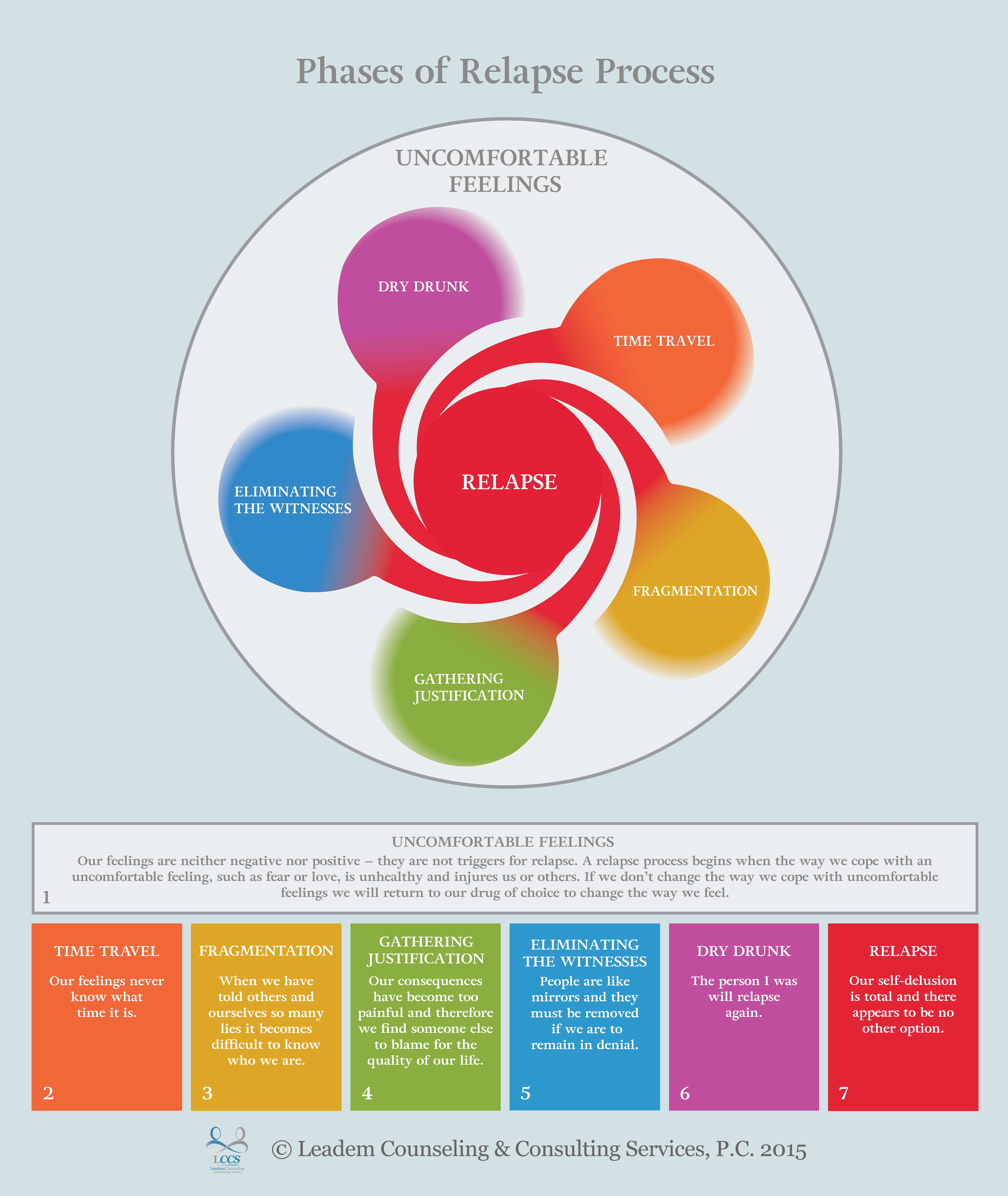Relapse Prevention: A Family Affair Part II
Children See & Hear – So They Should Speak
We believe that every young member of the family is impacted by the emotional and spiritual challenges that their recovering parents are experiencing. We grew up in a generation that promoted the foolhardy notion that children should be seen and not heard.
Some would argue that this notion teaches children respect. We do not believe that children learn respect by suppressing their thoughts, observations and feelings. We believe that children are silenced by adults because the adults are living by another harmful rule that is not taught as much as it is learned through experience. The rule can be framed in many ways, but the most direct way is: “If we don’t talk about it then we don’t have to feel it”. Many children grow up around adults who do not freely express their emotions, especially the uncomfortable ones.
 Kids will say what they are feeling until they are taught not to. When they are very young they often say things in public that might be embarrassing for their adult counterparts, like when they notice the color of a person’s skin or ethnic accents. But, we are clear and hope you are, that a child’s reference to difference is not where prejudice is developed. Children are taught prejudice by the adults in their lives. When a child is silenced in the name of “respect” we believe that this causes them to disregard or silence their emotions. When that happens there is going to be problems especially in the area of emotional intelligence [To learn more about what is meant by emotional intelligence, please consider viewing this video from Daniel Goleman, the author of the book Emotional Intelligence: Why It Can Matter More than IQ].
Kids will say what they are feeling until they are taught not to. When they are very young they often say things in public that might be embarrassing for their adult counterparts, like when they notice the color of a person’s skin or ethnic accents. But, we are clear and hope you are, that a child’s reference to difference is not where prejudice is developed. Children are taught prejudice by the adults in their lives. When a child is silenced in the name of “respect” we believe that this causes them to disregard or silence their emotions. When that happens there is going to be problems especially in the area of emotional intelligence [To learn more about what is meant by emotional intelligence, please consider viewing this video from Daniel Goleman, the author of the book Emotional Intelligence: Why It Can Matter More than IQ].
We believe children should be seen and heard and the expression of their feelings should be validated. Children know when their parents are in trouble. They might not know what is causing it, but they can see and feel that something is wrong. If we allow them the opportunity to describe their thoughts and express their feelings we will invariably be the wiser. When we commit ourselves to helping them develop their emotional intelligence we are demonstrating our wisdom.
It Can Hurt To Be The Town Crier
At the age of five I did not know what alcohol was doing to my father’s brain or how it related to his troubling behavior, but I was not stupid. I knew that when he drank my parents fought and when they fought my father would drink. I did not need to understand addiction or have a graduate degree in neurobiology to form a valid scientific solution — my father needed to stop drinking.
 Before entering kindergarten, I attempted many times to get him to stop drinking. Every time I tried it was met with the same “lesson” where I was silenced with abuse or punished by abandonment. Everyone in my family tried to get me to stop being the “town crier”. My sisters would tell me to shut up and stop causing problems. The parish priest slapped me in the face and told me if I could not “mind my own business” then I should at least “honor my father”. Mom attempted to numb my emotions and silence my verbal alarms by giving me double portions and sugary treats. Then there were times when the person I loved most, my grandmother, tried to muffle me with assurances that “while he did not know how to show it, he really did love me” and was not really choosing whiskey over me as I had tearfully sobbed to anyone who would listen. I did not believe that any of the people who were trying to silence me were doing so as a way of hurting me. I believe they were trying to numb themselves emotionally. For, when I talked — they hurt.
Before entering kindergarten, I attempted many times to get him to stop drinking. Every time I tried it was met with the same “lesson” where I was silenced with abuse or punished by abandonment. Everyone in my family tried to get me to stop being the “town crier”. My sisters would tell me to shut up and stop causing problems. The parish priest slapped me in the face and told me if I could not “mind my own business” then I should at least “honor my father”. Mom attempted to numb my emotions and silence my verbal alarms by giving me double portions and sugary treats. Then there were times when the person I loved most, my grandmother, tried to muffle me with assurances that “while he did not know how to show it, he really did love me” and was not really choosing whiskey over me as I had tearfully sobbed to anyone who would listen. I did not believe that any of the people who were trying to silence me were doing so as a way of hurting me. I believe they were trying to numb themselves emotionally. For, when I talked — they hurt.
Relapse Hurts Kids
 When an addicted parent has relapsed or is headed toward a relapse it should be assumed that his or her children are being emotionally injured. While it is outside the scope of this article, many authors have written extensively about the traumatic injuries endured by the children of alcoholics. [VeryWell Mind provides a nice cursory overview of characteristic traits many adult children of a alcoholics share and the consequences they likely experience as a result of growing up with an alcoholic caregiver.] While I regret that there was a time in the addiction treatment industry when most professionals assumed that children got better when their parents got help, I have long since awakened to the realization that first aid given to the driver and passenger in the front seat of the wrecked car does not help the rear seat passengers. Children need their own help and that cannot happen if they are not permitted to participate in the recovery process. We encourage children to participate in the recovery process in developmentally appropriate ways.
When an addicted parent has relapsed or is headed toward a relapse it should be assumed that his or her children are being emotionally injured. While it is outside the scope of this article, many authors have written extensively about the traumatic injuries endured by the children of alcoholics. [VeryWell Mind provides a nice cursory overview of characteristic traits many adult children of a alcoholics share and the consequences they likely experience as a result of growing up with an alcoholic caregiver.] While I regret that there was a time in the addiction treatment industry when most professionals assumed that children got better when their parents got help, I have long since awakened to the realization that first aid given to the driver and passenger in the front seat of the wrecked car does not help the rear seat passengers. Children need their own help and that cannot happen if they are not permitted to participate in the recovery process. We encourage children to participate in the recovery process in developmentally appropriate ways.
The case of the family which was the focal point of our last article, “Relapse Prevention: A Family Affair”, the addicted parent and his spouse were able to get help because of the courage that their teenage daughter and 7 year old son demonstrated. We met with the children during the early part of couple’s stabilization work to assess the emotional impact they had endured during untreated addiction. We determined that their parents’ presentation of their intellectual and emotional ability to participate matched the perceived emotional sophistication of the request the child made in the email. A brief excerpt from our relapse prevention course book, An Ounce of Prevention: A Course in Relapse Prevention, will help to set the stage because stabilization is a pre-requisite for working through the course and for beginning to help the children involved.
There are no absolutes in this course except that you cannot work on a relapse prevention plan if you are still active in your addiction. Once you have established abstinence from your drug of choice you can begin to formulate a plan for recovery that ensures that you will remain that way. In order to have both your plan and you be successful you must begin the construction on a stable foundation. Section 2 of the course will guide you through the development of a plan to stabilize your foundation but first you must be sure that your thinking is clear and your motivation is focused.
Each one of us needs to take full responsibility for the quality of our own lives if we are going to establish and maintain a sober life-style – free of addictive substances and behaviors. The course you are embarking on can aid you in your efforts to regain emotional stability in your life if you have been spiraling out of control in addictive relapse cycles. If you have established a solid recovery program – free of relapse – but have not been able to get off the emotional roller coaster the course will help you identify and replace unproductive behavioral patterns that may be robbing you of the joy of sober living. Sober Living brings joy. (John Leadem & Shawn Leadem, 2012)
Phases of Relapse
 The promise of gaining a life of shared joy came true for the family but it may have surely alluded them had their children not come forward and been considered as partners in the healing process. The majority of the initial therapeutic work was done with the parents exclusively. The children were invited in to aid their parents in identifying potential symptoms of relapse prior to completing the final plan.
The promise of gaining a life of shared joy came true for the family but it may have surely alluded them had their children not come forward and been considered as partners in the healing process. The majority of the initial therapeutic work was done with the parents exclusively. The children were invited in to aid their parents in identifying potential symptoms of relapse prior to completing the final plan.
I will briefly highlight the working definition of each of the phases of the relapse process found in the course before sharing some of Wendy and Timmy’s contribution in Part Three of this article.
The phases in the relapse process are recorded below for your reference from the course book:
Uncomfortable Feelings
The presence of uncomfortable feelings does not signal a relapse but you will not have a relapse without them. We know this to be true because we relapse with a design on changing the way we feel. Since every addicted person has learned to alter their feelings with addictive substances or behaviors, relapse prevention will require that alternative ways of coping with emotional challenges be learned and practiced. Uncomfortable feelings can trigger time travel regardless of the individual’s tenure in recovery or emotional and spiritual well-being. Uncomfortable feelings that are not anesthetized will “wake up” other uncomfortable feeling memories.
Time Travel
Our feeling memories of the past can flood our current reality and make it difficult for us to maintain objectivity about what we are experiencing in the moment. Time travel can be triggered by a vast number of variables such as illness, emotional intimacy, and threatening events, to name a few.
Fragmentation
When the ways that we Think, Feel, Speak, and Act do not match up we are fragmented because we present a distorted picture of who we are and what we are trying to communicate. The act of maintaining an openness, which allows selected others to see who we really are, can be one of the greatest challenges in recovery from an addictive illness. When my insides match my outsides, I am on my way to overcoming fragmentation.
Gathering Justification
No one really relapses because it seemed like “the thing to d
o at the time”. Everyone who relapses must find a way to make it OK. The justification, real or imagined, must be established to return to active addiction. In the course of gathering the justification we start putting emotional distance between us and other people.
Eliminating the Witnesses
First, we push people away to avoid the pain of seeing ourselves the way that others see us. Before long, a sense of isolation develops that threatens our emotional security and increases the attraction that relapse has for us.
Dry Drunk
The dry drunk phenomenon represents the level of behavioral, emotional, and spiritual toxicity that often leaves observers to suspect that the addicted person has already relapsed.
Relapse
This phase in the relapse process represents the addict’s return to active addiction. A relapse can stop with a single event or continue for the duration of the addict’s life that is far too often terminated prematurely.
Their parents and I spent about two hours explaining the phases in the relapse process to the children so with examples that would work with their intellectual ability, life experience and social and emotional maturity before helping them to frame their contribution. Dad and Mom cried many times during the initial training but Wendy and Timmy never stopped smiling. They were experiencing hope and feeling the connection in their parents that they had longed for. How could you not smile? I cried.
Our next article will explain the input we received from the children and highlight how it was integrated in the couple’s relapse prevention plan. Or I guess I should say, Family’s Relapse Prevention Plan because the children became co-authors.
See our book: An Ounce of Prevention: A Course in Relapse Prevention
Related Article(s)
VeryWellMind “Being an Adult Child of an Alcoholic” https://www.verywellmind.com/children-of-alcoholics-4157298
How Can Family Intervene in Addiction? The Importance of the Intervention Team
How to Avoid Relapse? How to Put a Relapse Prevention Technique Into Action
What is Relapse? What is Relapse Prevention?
About the Authors
 Both John and Shawn Leadem are Licensed Clinical Social Workers in private practice in Toms River, New Jersey.
Both John and Shawn Leadem are Licensed Clinical Social Workers in private practice in Toms River, New Jersey.
John has recently celebrated his 45th year in recovery and believes that “service to others is the cornerstone of spiritual maturity.” His professional service to addicted individuals and their families has included the development and direction of addiction treatment services in a full array of modalities from half-way houses to large residential treatment facilities over the past 44 years.
Shawn’s lifelong exposure to the recovery culture and his personal recovery experience has left him with a deep personal empathy for the social and emotional suffering endured by others and a strong faith in a person’s ability to change. He has received his certification as a Sexual Addiction Therapist and as a Multiple Addictions Therapist by the International Institute for Trauma & Addiction Professionals.
Together, John and Shawn have co-authored and brought their unique treatment model of relapse prevention, An Ounce of Prevention: A Course in Relapse Prevention, to residential treatment centers across the United States, they have trained therapists at numerous national and international conferences, and most recently have trained many EAP programs associated with many State Unions.
Copyright, John Leadem & Shawn Leadem, 2018
You are free to copy this article for future reference, to post it on other web sites and to share it with family or friends. If you would like to have permission to include it in a publication of your own you can request written permission by contacting the authors at www.leademcounseling.com.
[apss-share networks="facebook, twitter, google-plus, pinterest, linkedin" counter="0" total_counter="0" http_count="1"]







No Comments Yet | Post Comment
You can be the first to comment!
Leave a comment